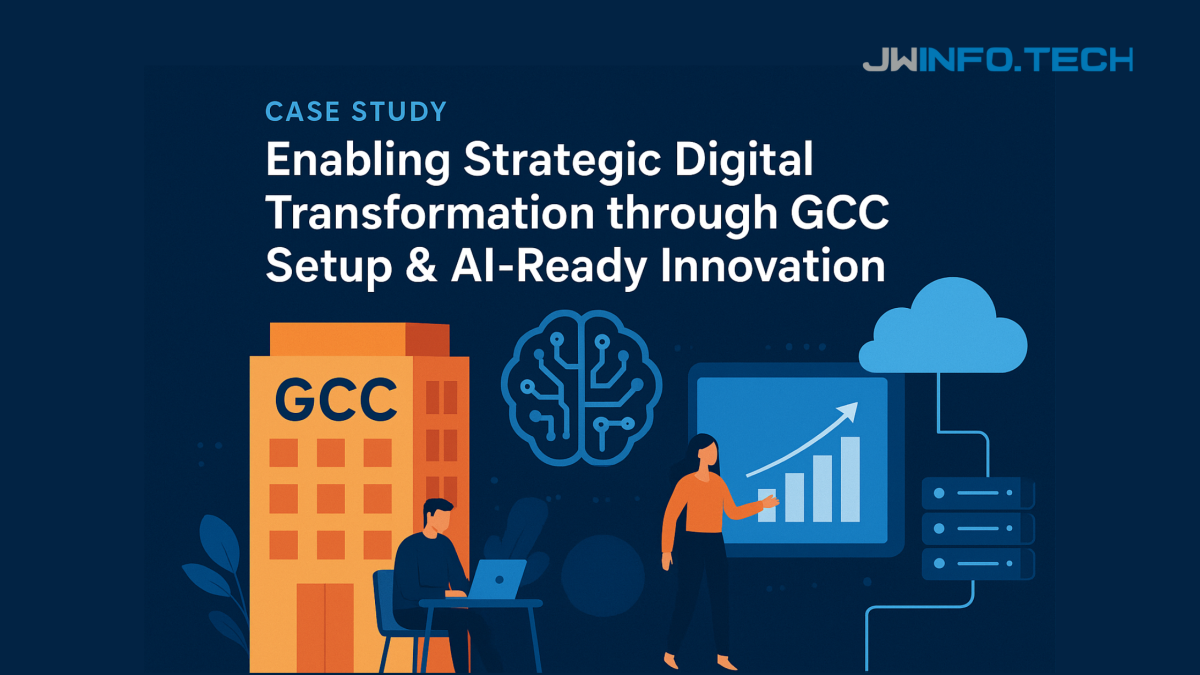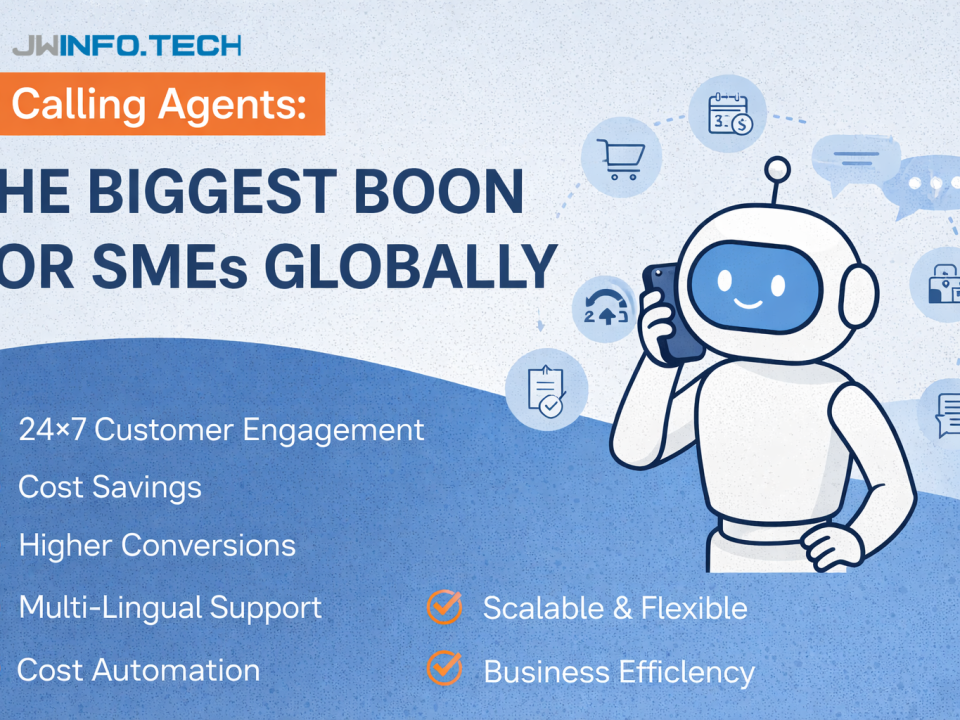Enabling Strategic Digital Transformation through GCC Setup & AI-Ready Innovation

Case Study: Steering Global Businesses in GCC Setup & Strategy with JW Infotech
August 6, 2025
Delivering High-Impact AI Consultancy for SMEs: JW Infotech’s Growth-Leveraging Approach
August 20, 2025Introduction
In today’s fast-evolving business environment, organizations are under constant pressure to expand their capabilities, optimize costs, and drive innovation without compromising operational excellence. Establishing a Global Capability Centre (GCC) in India has emerged as a proven strategy for achieving these goals. Combined with AI-driven innovation and cloud-native digital transformation, GCCs are no longer just cost-saving hubs—they are strategic innovation engines.
This case study explores how an integrated approach to GCC setup, AI readiness, and digital transformation empowers organizations to operate with greater agility, scalability, and efficiency.
The Challenge
Many global businesses face similar challenges when entering new markets or expanding their operational footprint:
- High operational costs in primary markets
- Difficulty in sourcing and retaining specialized talent
- Lack of agility in adopting emerging technologies
- Fragmented digital systems leading to inefficiency
- Need for innovation at scale without disrupting existing operations
The solution demanded a strategic, phased, and tech-forward approach to GCC setup and innovation readiness.
Our Approach
The transformation journey followed four key stages—each designed to deliver quick wins while building long-term capability.
1. Strategic Planning & Feasibility Analysis
- Identified the ideal location in India based on talent availability, cost structure, and infrastructure maturity.
- Conducted market and risk assessments to ensure compliance with regulatory, operational, and cultural factors.
- Defined the operating model—centralized, hybrid, or fully distributed—tailored to business objectives.
2. GCC Setup & Infrastructure Deployment
- Established state-of-the-art work environments with secure network infrastructure.
- Deployed cloud-first IT systems enabling remote collaboration and scalability.
- Integrated enterprise-grade security frameworks to protect data and processes.
3. Talent Acquisition & AI Readiness
- Designed role-specific hiring strategies to attract top talent in engineering, data science, and operations.
- Implemented AI-first training programs to prepare teams for automation, machine learning, and advanced analytics.
- Fostered an innovation-driven work culture that encourages experimentation and continuous learning.
4. Operational Excellence & Continuous Innovation
- Adopted Agile and DevOps practices for rapid, high-quality delivery.
- Established AI-powered analytics dashboards to track performance in real-time.
- Created a continuous improvement loop to ensure adaptability to market and technology changes.
Key Outcomes (Generic Metrics)
- 30–40% operational cost savings through optimized infrastructure and workforce strategies.
- Reduced time-to-market by up to 50% for product launches.
- Increased retention rates with enhanced employee engagement and career development programs.
- AI-driven decision-making embedded in daily operations, improving forecasting and resource allocation.
Lessons Learned
- GCCs must be viewed as strategic assets, not just cost-saving units.
- AI integration is most effective when aligned with business objectives and team capabilities.
- Change management is critical—technology adoption succeeds when people are equally prepared.
- Hybrid work models enhance flexibility and attract wider talent pools.
This case study demonstrates how a strategically planned GCC setup in India, backed by AI readiness and cloud-native transformation, can help global businesses achieve cost efficiency, operational excellence, and innovation at scale.
By combining strategic consulting, rapid execution, and continuous improvement, organizations can create GCCs that are future-ready, resilient, and competitive in the global market.



